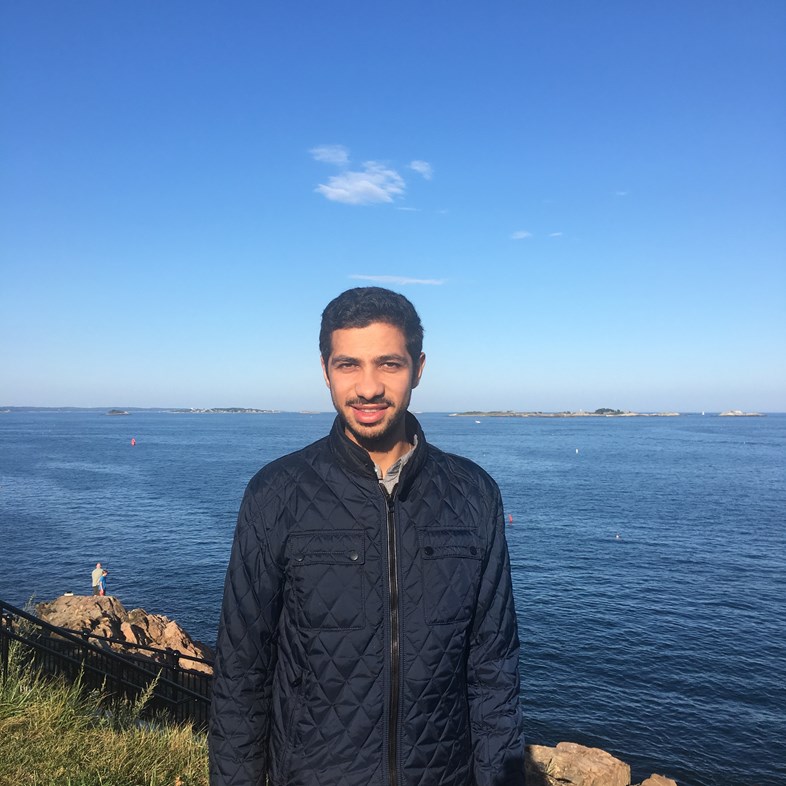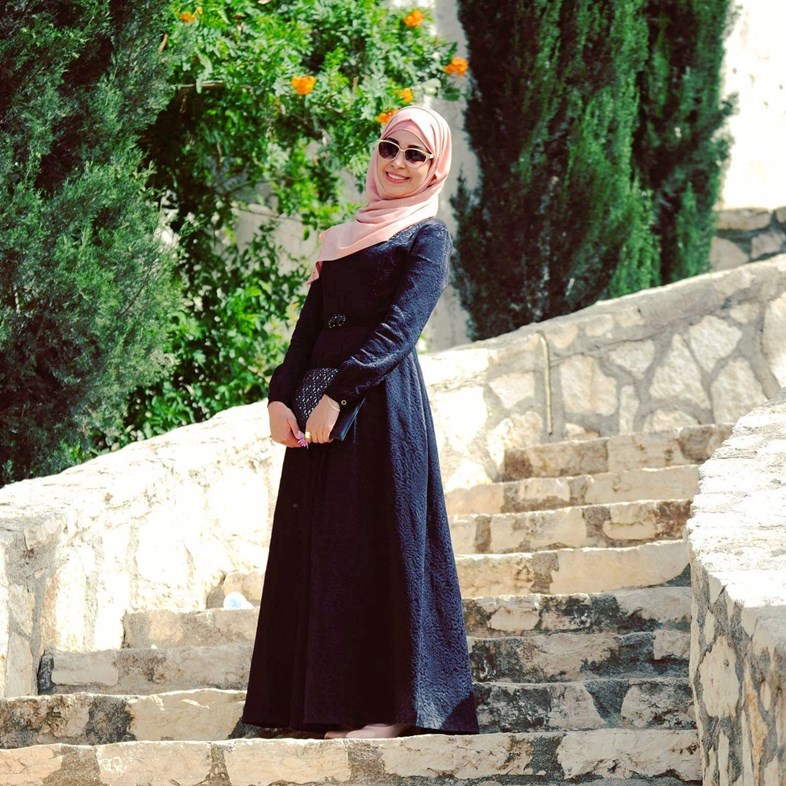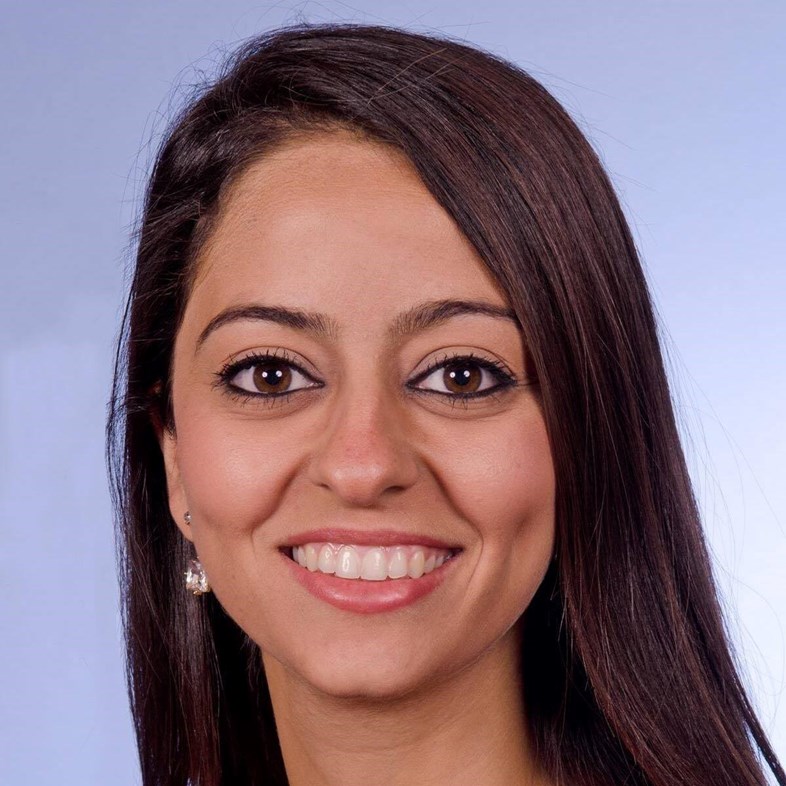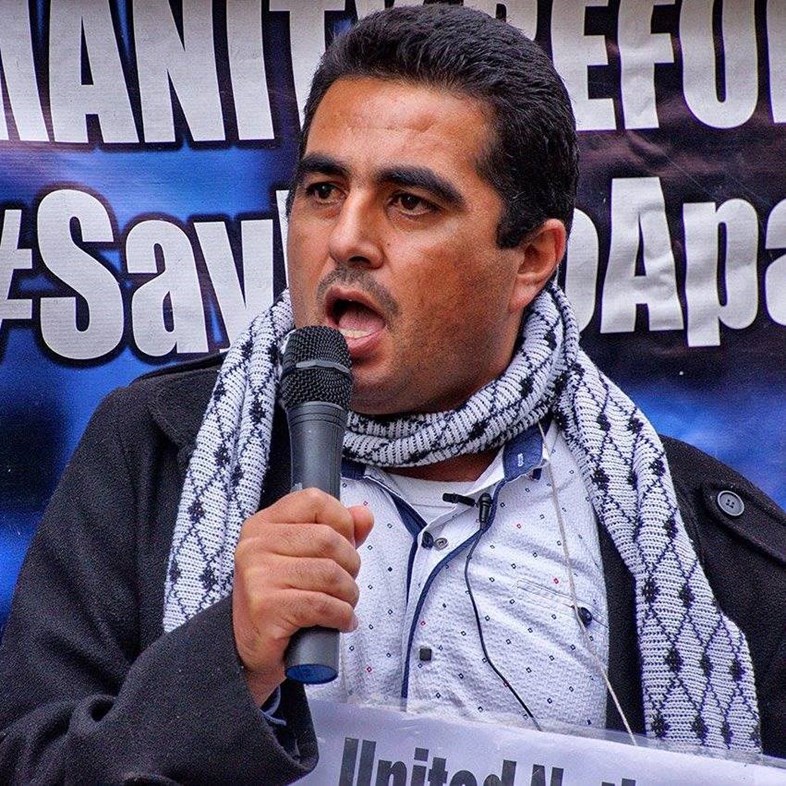Four Palestinians reflect on Trump’s decision to recognise Jerusalem as Israel’s capital and move the US Embassy there
- TextMichael Segalov
There are few places in the world which have such significance to so many as Jerusalem. It’s a city that has been the heart of kingdoms and empires; a city with a history that goes back centuries, long before modernity began. For Jews, Muslims and Christians, it’s a centre of religious significance, and today it’s thought by the people of two nations to be a capital city: the Palestinians and the Israelis too.
Since its foundation in 1948 the State of Israel has called Jerusalem its capital, but the international community has long understood the complexities of what recognition of this would mean. Countries from all corners of the globe have their embassies to Israel 40 miles west in Tel Aviv, a nod to the fact that for the 300,000 Palestinians living in the city Jerusalem is their capital too.
On Wednesday afternoon, Donald Trump gave his long-awaited speech on Jerusalem. Few believed he’d actually come through the promise he’d made during his election campaign to relocate the US embassy there. A vote in Congress saw the United States officially recognise Jerusalem as the Israeli capital over two decades ago, but six-monthly waivers signed by a string of Presidents have kept any move at bay in the interests of peace and national security.
In practice it’s possible that little will change in an already tense and divided Jerusalem – the Israeli authorities have long ignored international laws. The United Nations has considered East Jerusalem an annexed and occupied territory since 1967, but that hasn’t stopped imposed Israeli rule or the forced eviction of Palestinian families from their homes.
This announcement though will no doubt see Benjamin Netanyahu’s right-wing government emboldened in their activities, and an already fledgling peace process will now almost certainly be summarily dead.
In some ways the announcement was unsurprising – especially given Trump’s son-in-law and Policy Advisor has long supported expansionist settlements. Just as unsurprising has been the way the international news coverage has played out.
On late night talk shows, in newspaper columns and on rolling news channels much time has been dedicated – understandably – to this story, but few Palestinian voices have been heard. Fewer still those voices of people not in high office, detached from party politics – those who face the brunt of what occupation and oppression feels like every day. Here though, four Palestinian people share their thoughts on what this announcement means for them.
Ahmad Muna, manager of an educational bookstore in East Jerusalem

“Jerusalem is the capital of my country, Palestine. It’s where I’ve grown up, it’s my home, it’s where I come back to. Whatever Donald Trump says won’t change that.
The President’s announcement isn’t just a symbolic move in choosing a capital for Israel, it’s the bottom line. Jerusalem is the only thing Palestinians inside and outside of the country will not give away. The future of Jerusalem was meant to be decided through negotiations – that was agreed at the Oslo Accords. A deal was never reached on how Jerusalem would be divided, its future never settled. That’s why every President for over 20 years has postponed moving the US embassy, only Israelis and Palestinians can decide the city’s future, and Trump is neither.
“Trump says he wishes to facilitate a peace deal, but his statement declaring Jerusalem as Israel’s capital wipes this out completely”
I’ll be frank, nothing will change on the ground at first. Today was like yesterday and like tomorrow and like life will be in a week’s time. Jerusalem was already occupied before this announcement, it has been since 1967. In the short-term the embassy will be moved, which sets a dangerous precedent and in the long-term this marks the end of the peace process. Trump says he wishes to facilitate a peace deal, but his statement declaring Jerusalem as Israel’s capital wipes this out completely.
What I would have expected today is to see or read on the news that Arab leaders and ministers would have called Israeli ambassadors to meet, writing letters of condemnation. This didn’t happen, it looks like Arab leaders have given up on Palestine.
I think Palestinian people in Jerusalem and beyond are fed up. In my 27 years of life, things have only got worse. It’s hard to know if people here feel a sense of resignation or are ready for resistance. What can you do? When you have been let down by your leadership – if you can even call it leadership – it’s hard to know what to think or feel. This is a setback that is one of many, and it certainly won’t be the last.”
Bayan Badran, Cambridge School of Palestine in Nablus

“I felt violated when I heard the news. It’s as if we – the Palestinian people – simply don’t exist in the eyes of the United States. Sadly we are used to feeling that way under an Israeli occupation which treats us as if we have no land, no rights, no nothing. Trump is trying to do whatever helps the Israelis and what he sees as helping their interests, he doesn’t give a shit about Palestinian people.
The international community will do little following this announcement, but I had even fewer hopes that Arab nations around the world will do anything now. They’ll never wake up. They watched on as my family was driven from its land in 1948; our homes and lives were taken but there was no action. The Palestinian people are angry, but what can we do? We can take to the streets and demonstrate in protests and show our anger, but then what? We just have to wait and see, I suppose.
“I felt violated when I heard the news. It’s as if we – the Palestinian people – simply don’t exist in the eyes of the United States”
This announcement will I have no doubt provoke violence. It will also break decades of diplomacy and disrupt the Arab-Israeli peace talks, whatever was left of them. The problem with resistance is that we are not equal. The United States and Israel are two of the world’s strongest military nations. We Palestinians have passionate voices and handfuls of stones to throw.
I watched hundreds of people demonstrate today in front of checkpoints in my city, they were saying that they were ready to die for Palestine. We have nothing to lose, and nothing is more precious than our land. Jerusalem is the capital of Palestine and we will never give it up.”
Darin J Zeidan, development worker in Palestine

“I’m Palestinian, and I live in Palestine, but I don’t actually have access to East Jerusalem. As someone with a Palestinian passport and ID, I need to get a special permit to travel to the city, and for us that’s not at all easy obtain. As Palestinians we have heavy restrictions placed on our movements if we live in the West Bank, while the people who live in Gaza can’t go anywhere. I am allowed to travel to Jordan, but not to Jerusalem. If I need to fly I can’t use Israeli airports. It’s an injustice, but we’re just not listened to.
That’s why I’m not surprised that the Western media isn’t giving us space to speak. Palestinian people and opinions are being ignored. There were mass protests and strikes across the West Bank on Thursday, but nobody is looking at what is happening on our streets. As a Palestinian, I am always thinking about what could be done to bring peace to the region, but this move is just provoking us. If you spread injustice what do you expect the reaction of the who suffer people to be?
“Why is Trump the man to decide on our destiny? Who gives him the right to make this declaration?”
I live in Ramallah but I travel within Palestine for work, and I pass through settlements and checkpoints and soldiers with guns. I lived in the UK for a few years to study a Masters, and it was then I realised something was wrong. When you live here the situation feels normal, but once I experienced freedom of movement in England it’s clear to see what is wrong.
I’m sad and frustrated. Jerusalem should not be recognised as the capital of the state of Israel, it’s important to Jewish, Muslim and Christian people too. Why is Trump the man to decide on our destiny? Who gives him the right to make this declaration?
I have friends on my Facebook from all over West Bank, Gaza and Jerusalem. People are posting and writing how they feel. Now I wish people in the West will hear what we’re saying.”
Badee Dwaik, Human Rights Defenders in Hebron

“The Israeli army arrested my 12-year-old son here in Hebron today. They have released him, but they also arrested my brother who remains in jail. My brother was on his way to hospital when he was taken, my son was waiting somewhere else. I imagine today we will also hear Palestinians have been killed.
All day soldiers have been running through and invading the city. Some of my relatives escaped the from the soldiers, but my son and my brother didn’t. The thing is this isn’t out of the ordinary, my son was arrested and held for a day with other children last October. These things happen in Palestine every single day. It’s the norm. Today, like on many days, I am sad, upset and angry.
“The Israeli army arrested my 12-year-old son here in Hebron today. They have released him, but they also arrested my brother who remains in jail”
Trump has now decided to recognise Jerusalem as the capital of Israel, but it’s not at all surprising. It’s a long process that started a long time ago. Trump has been talking to Arab regimes and telling them what he would do. This is a regime not led by democracy or human rights, but by Trump and his family’s personal and political interests. He doesn’t care about Palestinian people or even Israelis. Much like the leaders of the political parties which represent Palestinian people too.
As far as I’m concerned the international community should have long been boycotting Israel and what the country produces, and after Wednesday’s announcements we should be doing the same to the United States.
As Palestinians the thing we can do is show popular resistance. We should be more organised, and have a strategy to stand up and say no more. We need a plan, we need to coordinate our resistance to the occupation, the the violence, and to the army.”











